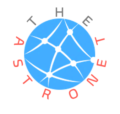Space News
6
Dec 20
Witness Rare Saturn and Jupiter Great Conjunction
Look to the night sky this month to spot Saturn and Jupiter great conjunction. Throughout most of this month of December, you'll be able to witness the planets Saturn and Jupiter inching ever-closer to one another in the night sky. By December 21st, 2020, they will be a within a staggering 0.1 degrees of one another (as seen from the naked eye), a proximity which hasn't been observed since 1226, almost 800 years ago (they also came slightly closer together around 1623, but they were so near to the sun at sunset that it is unlikely they were observed). This...
Read More
2
Dec 20
Arecibo Telescope: Collapse and Recognition
The Arecibo Telescope in early November after a main cable snapped. On December 1st, 2020, it was announced that the telescope at the Arecibo Observatory collapsed completely. The Arecibo Observatory, based in Puerto Rico, had one of the world's largest single-dish radio telescopes with a diameter of 305 meters (1,000 feet) and was a leading contributor to a range of astronomy-related sciences. The telescope had partially collapsed in early November 2020 after a main cable snapped, leading the National Science Foundation to announce plans to decommission and disassemble the telescope, and it is now clear with the most recent collapse...
Read More
21
Oct 20
Contact with Asteroid Bennu
Artist's depiction of OSIRIS-REx preparing to tag Asteroid Bennu for the Touch-And-Go (TAG) sample event. Yesterday, on October 20th, 2020, the OSIRIS-REx spacecraft made contact with Bennu, an asteroid around 2 hundred million miles away from Earth. Its robotic arm extended outwards, and as it touched down on the loose, rocky surface it collected a sample from the asteroid, which it will now endeavor to return to Earth by 2023. Now I want to start by addressing perhaps the most obvious question: Why is this important? This won't have been the first sample we've collected of asteroid material. In fact,...
Read More
12
Oct 20
Physics Nobel Prize 2020 – A Win for Black Hole Research!
First image capture of a black hole, taken in 2019. Last week, the 2020 Physics Nobel Prize was awarded to three researchers - half of it to Roger Penrose, and the other half jointly awarded to Reinhard Genzel and Andrea Ghez (the fourth woman to earn the physics Nobel Prize!). Everyone in the astro community was thrilled that it has now been 2 years in a row that the physics Nobel Prize goes to space-related areas, first exoplanet research in 2019, and now in 2020 to black hole research! Here's a brief breakdown of their black hole research: In the...
Read More
15
Sep 20
Life on Venus?
Venus, the supposedly inhospitable planet. This week, a new research article was published that announced the detection of a biosignature in the atmosphere of Venus. Hold up - did someone just say life on Venus? Does this mean we've done it? We've finally succeeded in detecting extraterrestrial life? Unfortunately not. And this brings us to the most important question: What do we know? The research team responsible for this fascinating study announced the detection of a biosignature molecule called phosphine, or PH3, in the atmosphere of Venus. Something is a biosignature when its presence could indicate life, or biology. Thus,...
Read More
